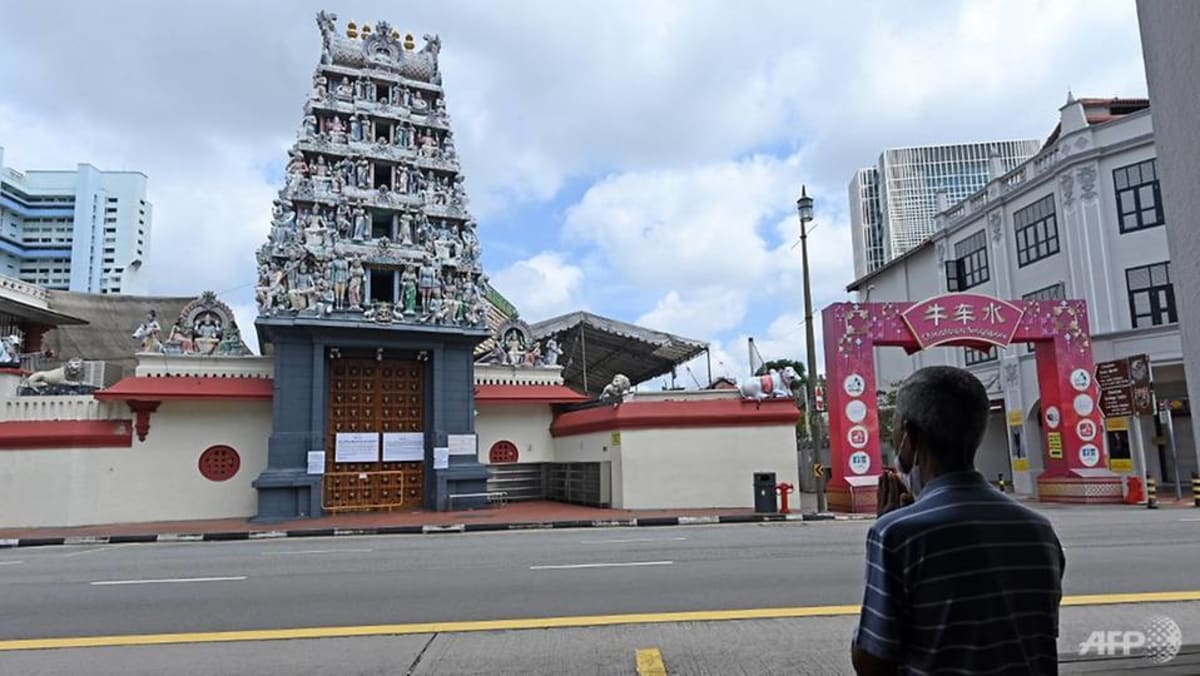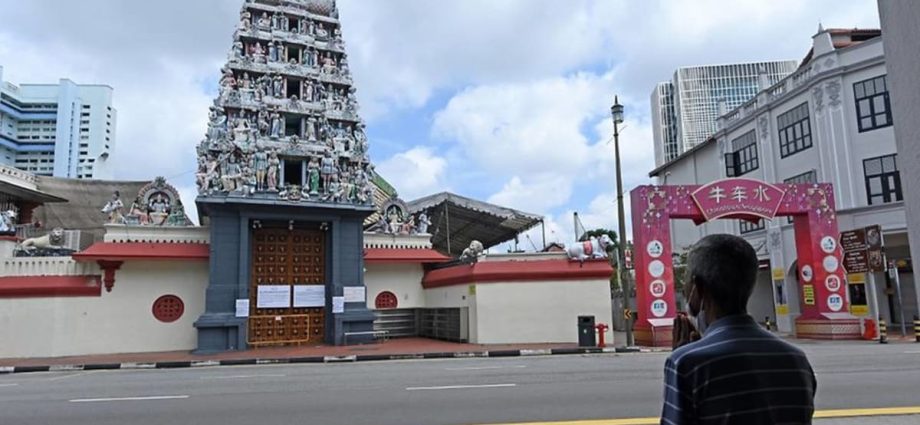
SINGAPORE: Land for places of worship will be allocated through ballot instead of undergoing bidding in the future.
The change addresses concerns from religious organisations about the price rise of land used for places of worship over the years, said the Ministry of National Development (MND) in a press release on Sunday (May 28).
The land is segmented by place of worship type, such as for Chinese temples, Hindu temples, Sikh temples or Christian churches. Previously, land set aside for places of worship was offered to the highest bidder under a land tender system.
Mosques do not fall under this system as mosque development is centrally coordinated by the Islamic Religious Council of Singapore (MUIS).
In 2018, the framework was modified to introduce conditions other than price, so that only religious organisations that contribute to the community and have a need for space qualify to bid for the land.
The land will then be awarded to the highest bidder from that narrowed pool.
The new system will retain the existing qualifying criteria, but the land will be allocated by ballot rather than through a competitive tender.
“The revised framework was developed to address the rising place of worship land prices as well as to promote equitable access to PW land for religious organisations” said MND.
“This will better allow Singaporeans to have the space to practise their religion.”
There will also be upfront “price certainty” as the religious organisations will pay a pre-determined price, reflecting the “fair market value” of the site, as determined by the chief valuer.
The prices are expected to be lower than the prevailing prices, said the ministry.
HOW IT WORKS
Before becoming eligible for the ballot, religious organisations must meet the following qualification criteria, including being registered religious organisations who conduct regular activities that benefit the community, demonstrate that they have a need for a new site, and have adequate, sustainable local funding.
Once these criteria are met, they will be given one ballot chance by default. Religious organisations will be given one additional ballot chance for each unsuccessful attempt at obtaining land in the past five years, capped at a total of four ballot chances.
There will also be a “cooling-off period” for religious organisations which have obtained a new site in the past five years, and those which have renewed their lease, tenancy agreement or temporary occupation licence in the past two years. They will not be allowed to participate in the ballot.
MND said it plans to release new land later this year for places of worship, and details about the upcoming launches will be announced when ready.
The ministry said that religious leaders in the national steering committee on racial and religious harmony welcomed the efforts to ensure that land for places of worship is allocated in a “more sustainable manner”.
Mr Malminderjit Singh, chairman of the Sikh Advisory Board, said that the Sikh community in Singapore has in recent years explored expanding the number of Gurdwaras due to larger congregation numbers and an increased demand for religious services and classes.
It also wants to expand to parts of Singapore where a substantial portion of the community comes from but where there is no Gurdwara in proximity.
“The increasing price of land, including for places of worship, meant that it was always going to present affordability challenges for a small religious community as ours,” said Mr Singh.
“The pre-determined prices, which provides upfront certainty about price, is much welcomed as we now have a level playing field where it is more equitable for smaller religious communities to access land space for their worship needs.”
The National Council of Churches of Singapore (NCCS) said that the previous bidding system was less favourable to churches that did not have much funds at their disposal, and the new system will give these churches better chances of being awarded the tender.
Under the previous practice of competitive bidding, Adam Road Presbyterian Church was awarded the site at Bukit Batok West Avenue 5 in June 2020, at more than S$12 million (US$8.89 million) for a 30-year lease, which does not include building costs.
Religious groups all said that the new system will help them focus on helping society, rather than raising building funds.
“We understand that the fixed pricing will be less costly to churches. Therefore the savings could be channelled to social service to benefit many more in society,” said NCCS.
“With these savings, most churches will be able to increase their outreach programmes for welfare work and donate to charities.”
NCCS said it will also strengthen the spirit of cooperation among the churches, when this unnecessary element of competition can be removed.
Venerable Seck Kwan Ping, President of the Singapore Buddhist Federation, told CNA: “Under the new system … they don’t have to worry about having pressure to raise funds for the payment. I think that’s good, so they can make use of the time or save money for their activities to help society.”

